Journey of i-Saksham to Build Local Women Community Edu-leaders – A Reflection
In “Journey of i-Saksham to build local women community Edu leaders: a reflection,” Ravi Dhanuka engages with the experiences of his organization in creating community level leadership in the education domain through a fellowship program.
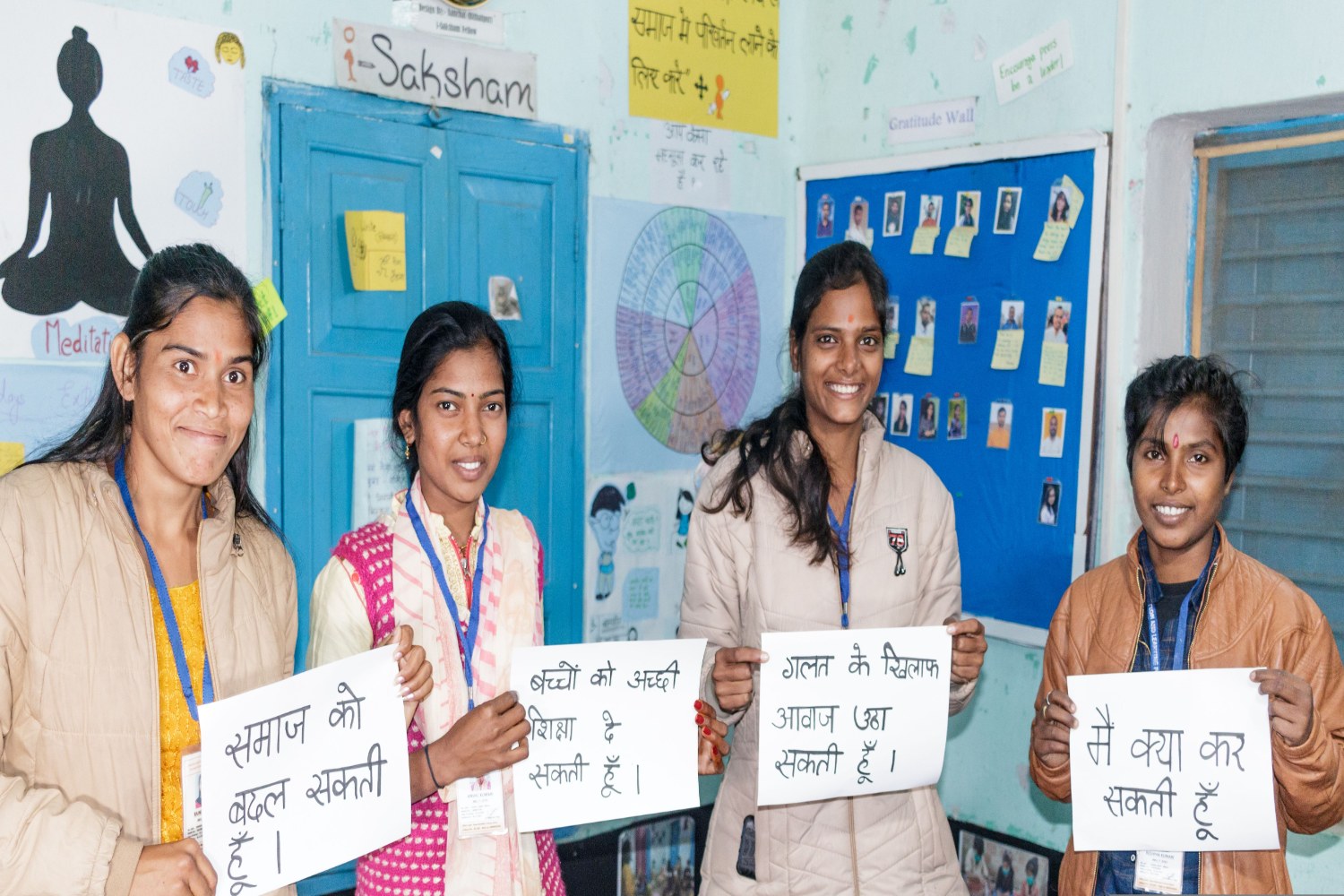
Neelima: I want to go to Patna to write an entrance test.
Parents: But why would you want to do that? Younger brother: You will not go alone.
Neelima: I wish to go to good colleges in the country, be self-reliant.
Younger brother: You will not go. That is all.
This is a real-life incident that took place in Jamui, Bihar around 2016-17. The name has been changed to maintain confidentiality. The story of Neelima is not her alone. As we surge forward as one of the fastest growing economies in the world, young women in the country, especially from marginalized communities, continue to be vulnerable. The denial of opportunities to be yourself, to realize your potential, and to gain respect for who you want to be, often compel them to lead a life of unacknowledged identity and unexplored aspirations.
During our stint in the Prime Minister’s Rural Development Fellowship between 2012 and 2015 in the hinterland of Bihar, we witnessed numerous such instances and asked ourselves, “Can the foundation of a vibrant democracy be laid when the potential of 10 million young women in Bihar alone (100 million in India) remains untapped to contribute to the socio-economic growth of their communities?”
Early Thoughts
We envisioned that the solution lies in mainstreaming the contributions of local young women, giving batons into their hands to bring change in real life, and showcasing how they can lead their communities from the front.
We chose early-grade education as an area of intervention because:
- It is the best investment to generate long-term human capital in backward communities.
- It puts children on a solid foundation to be lifelong learners.
- In the process, our young women would learn group facilitation skills, communicate assertively, set goals and gain confidence.
Hence, the i-Saksham fellowship program was started to build local young women as ‘Leaders of Change’ to leverage education to bring personal and community transformation. We call them ‘edu-leaders’.
Fellowship Program’s Objective
The objective of the fellowship program is to enable edu-leaders to grow across these three integrated leadership tracks:
- Personal Leadership: Grow as female role models, and inspire other young women to pursue their dreams.
- Educational Leadership: Develop a learning foundation in children by teaching in local government schools for two years and transform learning norms. In the process, edu-leaders learn to lead as champions.
- Community Leadership: Enhance parental engagement and build networks to become local community change agents in the long run.
Principles
This articulation of the basic principles of the fellowship program draws from the USAID Framework of Positive Youth Development.
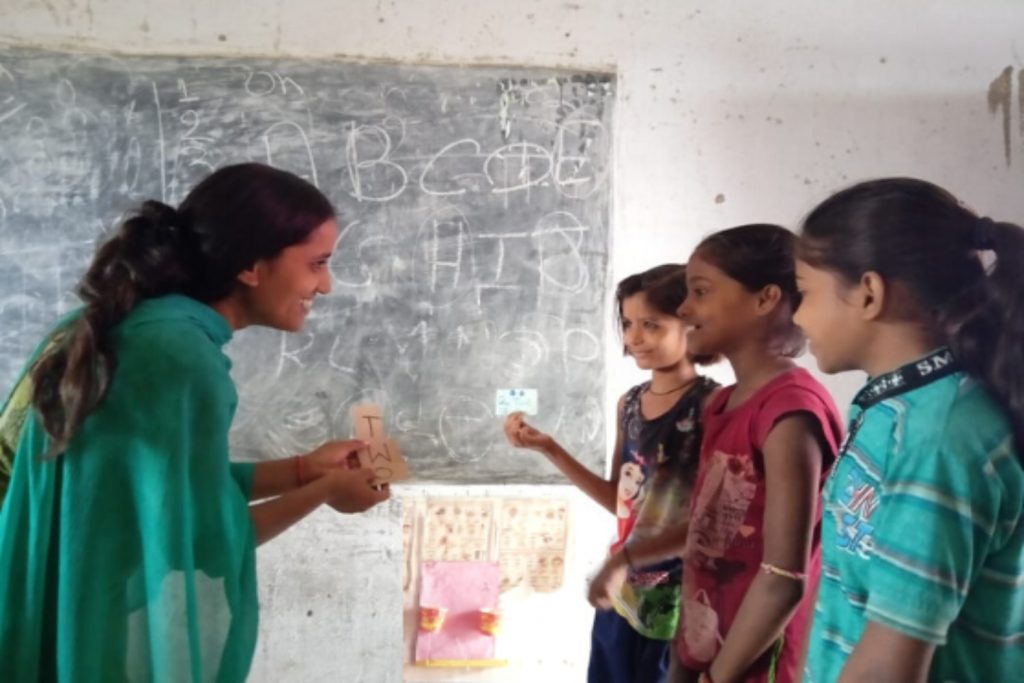
“I was scared to do parent meetings all alone. I never thought I could do it, but my buddy Sakshi didi and my school teachers supported me. Today, parents did come and resolved that they would encourage their children to go to school daily. I am very happy.”
- Building relationships of care and challenge for growth: The journey of leadership starts with the self and with the ability to form meaningful relationships with others. A ‘buddy’, peer mentor (mainly an eduleader alumnus) is assigned to an edu-leader fellow to be that best friend we all need.
They provide non-judgemental spaces to share vulnerabilities, push them to take the plunge, and celebrate achievements. The tools used are monthly coaching calls, onsite classroom-level support, regular goal setting, and performance reviews. - Imparting edu-leaders with relevant technical and social skills: We strongly believe in building domain expertise, and that leadership is as much about setting examples as inspiring others. With 200 hours p.a. of training and followup support structures, we ensure that eduleaders engrain relevant pedagogical and community facilitation skills.
- Giving real-life opportunities to bring change: Edu-leaders intervene for 10 hours per week to transform learning norms in schools. They enliven classrooms with charts and print-rich materials. They create an inclusive learning atmosphere by sitting with them on the floor and interacting with them respectfully.
Through activity-based methods, children show improvements in their commitment to learning and grade-level outcomes. And edu-leaders demonstrate what community participation can achieve and how women’s potential can unlock value in and for others. - Developing a sense of agency: In the process of bringing educational change, we encourage edu-leaders to reflect on their true calling, and realize the power of their self-worth.
Once this sense of self-determination is stimulated, no one could stop her from pursuing her life goals and raising her voice against injustice. We do monthly reflection check-ins where edu-leaders share progress against their broad life goals. - Creating an enabling environment: Supportive relationships are very critical for success. We encourage this by showcasing edu-leader’s achievements and learning progress in children before the wider community. We conduct regular interactions with parents, school teachers and other immediate stakeholders.
Current Status
Since 2017, i-Saksham has grown from 15 edu-leaders in two blocks to a cadre of 200+ community edu-leaders working across 100 government schools and impacting 7,500 children. This has achieved success in four backward districts of Bihar including Gaya, Jamui and Munger.
A recent Third-Party Party Assessment shows the following significant achievements:
- The edu-leaders scored 80% on a self-efficacy scale. With their enhanced confidence and assertive communication skills, they negotiated for their dreams.
- Almost 100% of edu-leaders enrolled for undergraduate degree courses while the state average is just 12%.
- 40% of the children taught by edu-leaders could learn to read in 2021, despite COVID constraints.
- Fellowship alumni have become role models, professional mentors (‘buddies’), run community learning centres, improved parental participation and joined NGOs.
- Edu-leaders have formed cluster-level collectives to network for change and provide mutual support. Around 50% reported delays in their own marriage and raised voices on social issues such as early marriages and student drop-outs.
Reflections
- Is a two-year period enough for building lifelong leadership? i-Saksham’s idea is to make this two-year fellowship one of the best periods of their lives wherein they experience just being themselves, experiment without fear, share with trust, realize their strengths and contribute to the betterment of their communities.
This sense of achievement, competence, and belongingness is not ephemeral. Once tasted, our edu-leaders will always strive to live and negotiate for the life of their dreams. As Kanak (an edu-leader of the 2018-20 batch, currently serving as ‘buddy’ to a new cohort of edu-leaders from her community) says, “Edu-leaders will not be able to hold themselves back if they see injustices around”. Edu-leaders do feel very sad in the last quarter of the fellowship. Like all beautiful relationships in life, they do not want to let it go. The real challenge for i-Saksham would be to nurture their peer-driven collective so that they continue to provide the same sense of security and opportunity to edu-leaders to push themselves. - Contributions to strengthening the system: We take Robert D. Putnam’s (1993) comment – “Through participation, citizens influence the institution and make it more effective to their needs” – very seriously National Education Policy 2020 sees enhanced community engagement as critical for the universal achievement of Foundational Literacy and Numeracy and improved accountability of the public education system in the long term.
Leadership is contagious. We have ample evidence of edu-leaders’ good work triggering positive reciprocal actions from Head Masters and School Teachers. These range from unlocking resource materials from the closet, using activity-based pedagogy methods in classrooms, shifting mindsets, and organizing parents’ meetings.
The next steps are enhancing collaborations between government teachers and eduleaders to achieve the common educational goals for their communities, and replicating the learnings with other teachers in the system through the work of the ‘Knowledge and Research Centre’. - Integration of leadership and education: How do we balance the goals of enhancing the learning experiences of children with that of building a community leader? Fundamentally, we don’t see a conflict here. Enriching the learning of children becomes a cause for edu-leaders. Thus, it becomes an important marker for them in the journey of achieving credibility as leaders and for actualizing their sense of purpose.
- What is education for? Conditioned with assessing the ranking of colleges with average job placement packages, it took us almost half a decade to experience in action the unleashing of the conscious self and building of a sense of community through education. Social capital and empowerment are the two most important aspects of education based on which the fabric of civilization is created.
“Previously I used to think that my presence in school did not matter much. But it has now begun to change. My teachers do ask about my whereabouts if I am absent. What to say of my kids! They barge into my house and fight with me saying, ‘What happened? Why didn’t you come? Now you will have to feed us rice and daal as well.’ I just fumble and smile. My mother feels very proud of me and blesses me.”
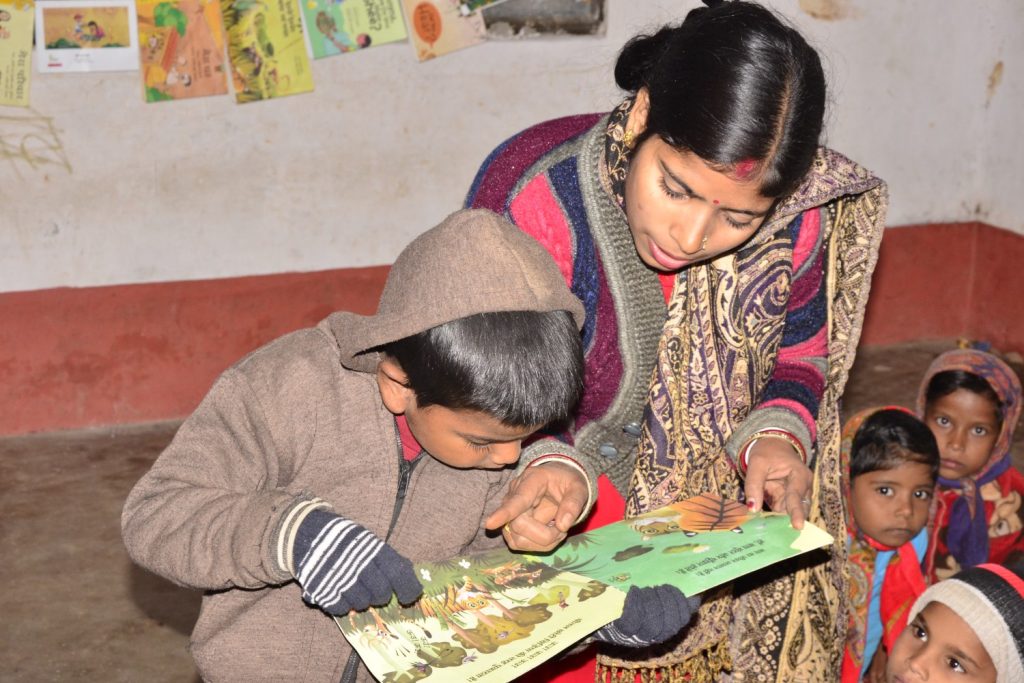
Way Forward
Having stimulated the sense of purpose in edu-leaders, the self-belief that they can achieve, and a network of relationships that is accommodative of their aspirations, i-Saksham has the following options:
- Not do anything additional and trust that edu-leaders will find their way: We have been following this strategy since the graduation of the first batch of edu-leaders in 2019 and experienced that they indeed tried to find their own ways as reflected in increased enrolment in higher education, working with other NGOs, and delays in their age of marriage.
- Act as a conduit for partner expert organizations and enable them to leverage the cadre of edu-leaders to deliver lastmile services: i-Saksham started working on this strategy at the beginning of this year and received a phenomenal response from other organizations. They are keen to enter or expand in Bihar and trusted local human capital would be valuable. This would create more structured opportunities for eduleaders and deepen the fellowship program’s impact on the community.
- Facilitate a collective of edu-leaders: i-Saksham is currently exploring this initiative where power shifts to their hands and in the long run they become a conduit to partner with other organizations. It can become an institution, by them and for them, to enhance young women’s participation in various spheres of socio-economic life.
- Institutionalize the learning of edu-leader’s efforts: i-Saksham is curating coaching resources and learnings of the half-decade of building local human capital to enable an open-source movement of grassroots leadership. We envision that marginalized communities must not always be on the receiving side of services of the government and the market. Young women from these communities have the potential to lead from the front as representatives of society to build the Saksham (capable) society of our dreams.
Two years after the incident mentioned at the beginning of this article, Neelima went on to pursue an M.A. in Women Studies degree from TISS, Mumbai.


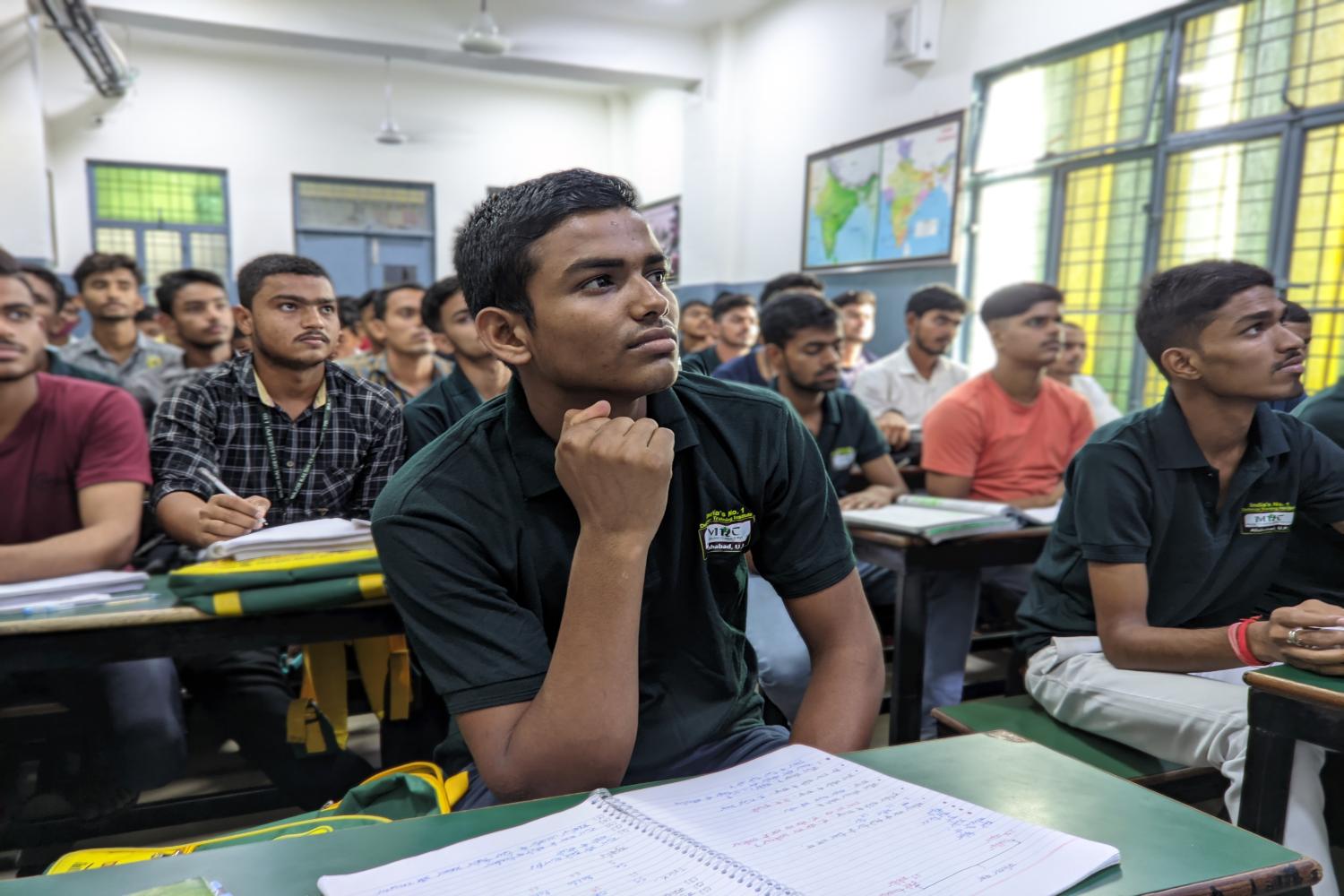
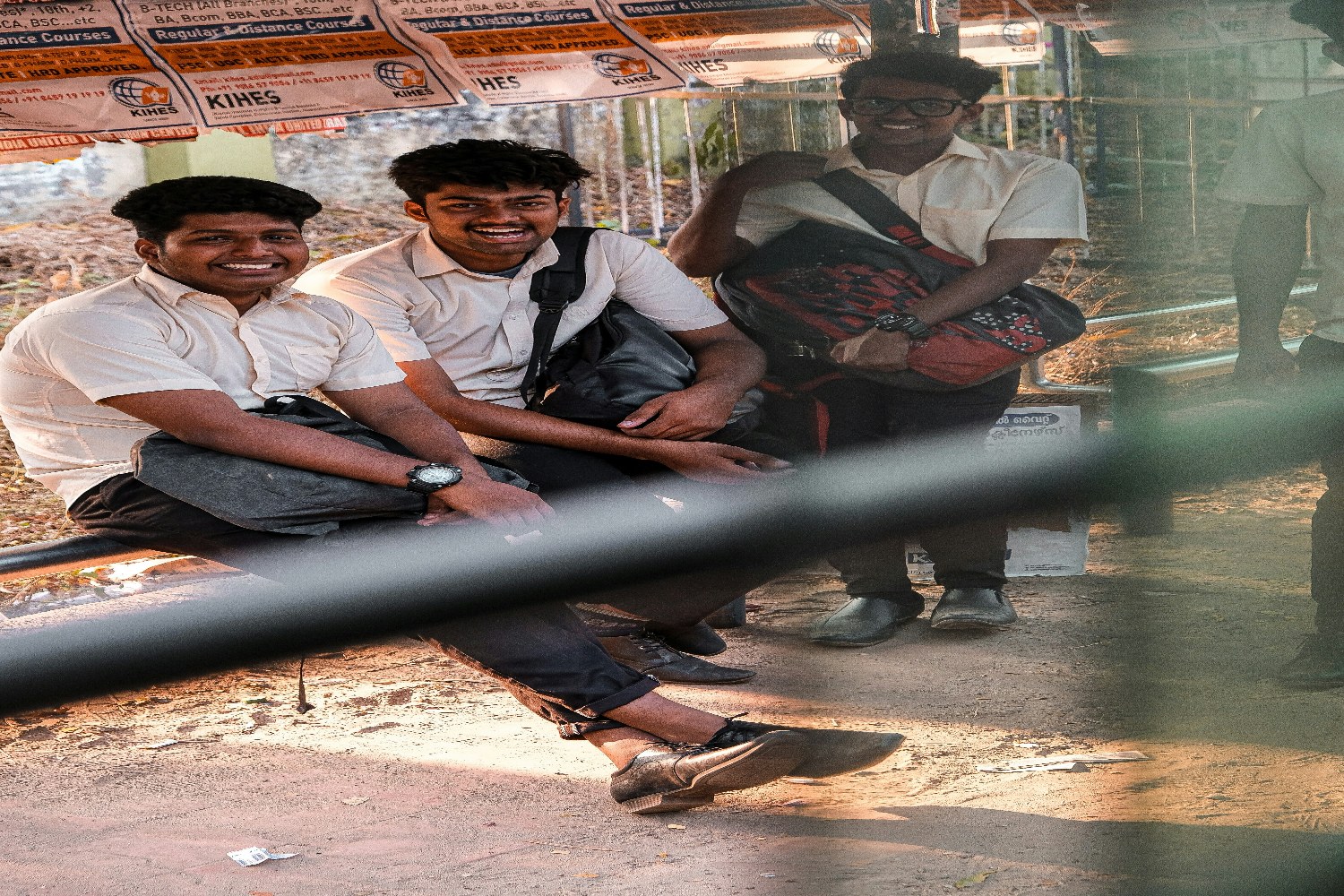
No approved comments yet. Be the first to comment!